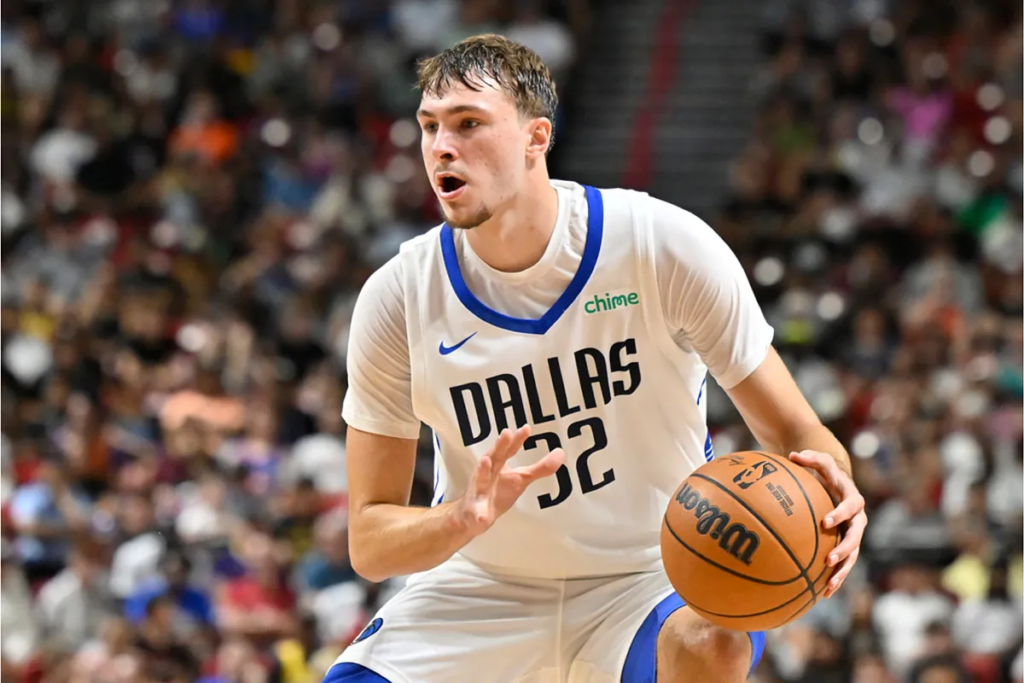Cooper Flagg has spent the opening weeks of his NBA career proving he can survive pressure most first year players never face, but the Dallas Mavericks rookie offered a moment of honesty that cut through the noise surrounding the team’s rough start.
After a draining double overtime loss to the Los Angeles Clippers, Flagg admitted that being thrust into the role of primary point guard exposed just how steep his learning curve really is.
The Mavericks drafted Flagg expecting versatility, confidence and long term star potential.
What they did not account for was how quickly they would need him to manage the responsibilities of a position that demands constant decision making and control. Injuries and roster instability forced the 18-year-old into that spot before he was physically or emotionally ready.
“Being a point guard comes with a lot of responsibility,” Flagg said. “I do not know if I was ready for that right away. It does not mean I cannot go back to it or improve, but lately it has been better having someone else help with pressure.”
It was a revealing admission from a player who rarely shows frustration, even while guarding veterans, closing quarters and taking late shots during Dallas‘ turbulent 3 and 10 start.
A rookie showing poise while revealing the strain
Flagg‘s growth has been easy to see. He logged forty seven minutes against the Clippers, scored sixteen points on efficient shooting and forced a second overtime with a fearless driving floater.
He has also displayed an advanced understanding of spacing and matchups that many rookies take years to develop. He explained that his improvement has come from learning how to read the game in real time.
“Knowing time and score, knowing matchups, who is on the court,” he said. “A lot of flow of the game stuff. Thinking the game.”
Yet the same instincts that have impressed the coaching staff also highlight why Dallas eased him back toward his natural forward position. Jason Kidd praised Flagg‘s calm, but made it clear the team had to stop asking him to carry too much.
“He played his heart out,” Kidd said. “He stayed poised. Once we got the ball in his hands late, he capitalized. He did a great job getting to the paint and getting into his shot.”
D’Angelo Russell‘s presence has also helped. With a traditional ballhandler absorbing pressure, Flagg has found cleaner angles to attack the rim and has shown better rhythm in half court sets.
Since the lineup shift, he has averaged more than sixteen points per game on improved efficiency, balancing his responsibilities without the constant weight of orchestrating the offense.
“It does not mean I cannot bring it up,” Flagg said. “But having another ballhandler helps.”
Flagg has also embraced the physicality that often overwhelms rookies. He said veterans have helped him understand how to initiate contact, drive with force and withstand the constant collisions that define NBA basketball.
“Learning from Naji and PJ, getting to the rim, playing with force,” he said. “You learn a lot from that.”
His blunt critique of Dallas‘ execution after the Clippers loss showed how quickly he has absorbed the expectations of a franchise searching for composure.
“Turnovers,” he said. “Some late stupid turnovers. And not getting great shots. When we have empty possessions, it is tough to win.”
It was the type of accountability that usually comes from established players, not teenagers.
The Mavericks still see Flagg as one of their most important long term pieces. The early point guard experiment may have been premature, but it also accelerated his understanding of tempo, pressure and decision making.
And if anything, his willingness to admit his limitations now may be the strongest sign that he is built for what comes next. For a team struggling to find consistency, Flagg‘s clarity, and his maturity, remain bright spots in a complicated start.
Read the full article here

